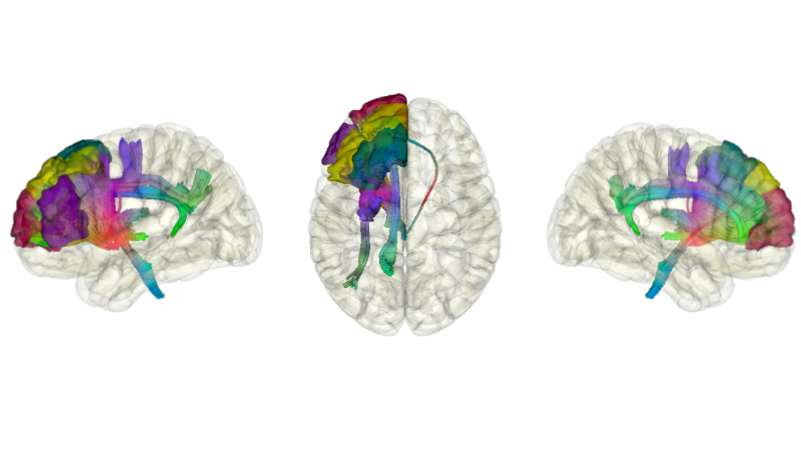This post is also available in Dutch.
Understanding Brain Injuries
When the brain experiences trauma, such as a stroke or injury, it can disrupt its normal functioning. However, the brain possesses incredible adaptive mechanisms that kick into action to repair and compensate for the damage. The SPECS lab (Synthetic, Perceptive, Emotive and Cognitive Systems Lab – SPECS-lab) at the Donders Institute focuses on comprehending these intricate repair processes and identifying the specific areas affected by injuries. If we understand these mechanisms better, we can develop even better and treatments that are specialised to different individual’s needs.

Analysing Brain Signals
The Power of Brain Rehabilitation
One aspect of SPECS lab research explores the use of a non-invasive technique called Transcranial Ultrasound Stimulation (TUS). This relatively new approach holds promise in enhancing the brain’s natural recovery process. By applying focused ultrasound to specific brain regions, researchers aim to stimulate neural activity, bolstering the brain’s ability to repair itself. This could be promising in case of a stroke; where a small part of the brain is damaged due to a lack of oxygen.
Hope for Individuals and Families
The implications of this research extend beyond scientific curiosity. It offers hope to individuals who have experienced brain injuries, and to their families. With a deeper understanding of the brain’s innate healing mechanisms and the development of targeted interventions, there is newfound optimism for better rehabilitation outcomes and improved quality of life.
The work of researchers at SPECS lab situated at Donders Centre for Neuroscience is revealing the mysteries behind brain recuperation and transforming the realm of rehabilitation. Through their studies, we gain insights into the brain’s astonishing capacity to heal and adapt. By using advanced technologies and innovative interventions, we stand at the brink of a fresh era in Neuro-Rehabilitation. With continued dedication and scientific breakthroughs, the future holds tremendous potential for transforming the lives of individuals affected by brain injuries.
Credits
Editor translation: Eline de Boer
Featured image via https://www.brainx3.com/
